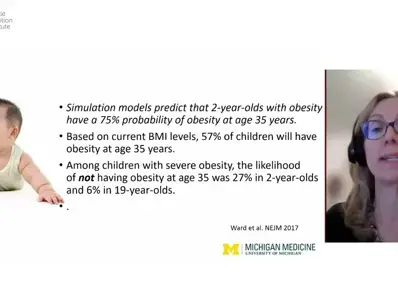The Clinical Efficacy and Cost-Effectiveness of Meal Replacements for Weight Management: Achieving Improved Management of Co-Morbidities and Diabetes Remission
According to the World Health Organization (WHO), there are approximately 650 billion adults worldwide affected by overweight and obesity, which is often the consequence of a combination of a high-caloric and high fat diet, little to no physical activity, and a genetic predisposition. Obesity not only increases a person’s risk of developing type 2 diabetes but also concomitant conditions like hypertension, dyslipidemia, and nonalcoholic fatty liver disease. To reduce the risk of developing type 2 diabetes and improve patient outcomes, clinical guidelines recommend lifestyle intervention (diet and exercise) and a 5-10% reduction in body weight which can be achieved using either or both nonpharmacological interventions, such as a low energy diet, or pharmacological interventions. In this webinar, Dr. Amy Rothberg discusses the clinical application of meal replacements and the impact on weight loss and weight-related co-morbidities. She also addresses how weight loss achieved using meal replacements impacts health-related quality of life and cost-effectiveness. Professor Mike Lean addresses the role of insulin resistance in the pathophysiology of type 2 diabetes and key learnings from clinical studies that evaluated the use of meal replacements as total diet replacement to achieve weight loss and improved glycemic control or remission.
If you liked this post you may also like
